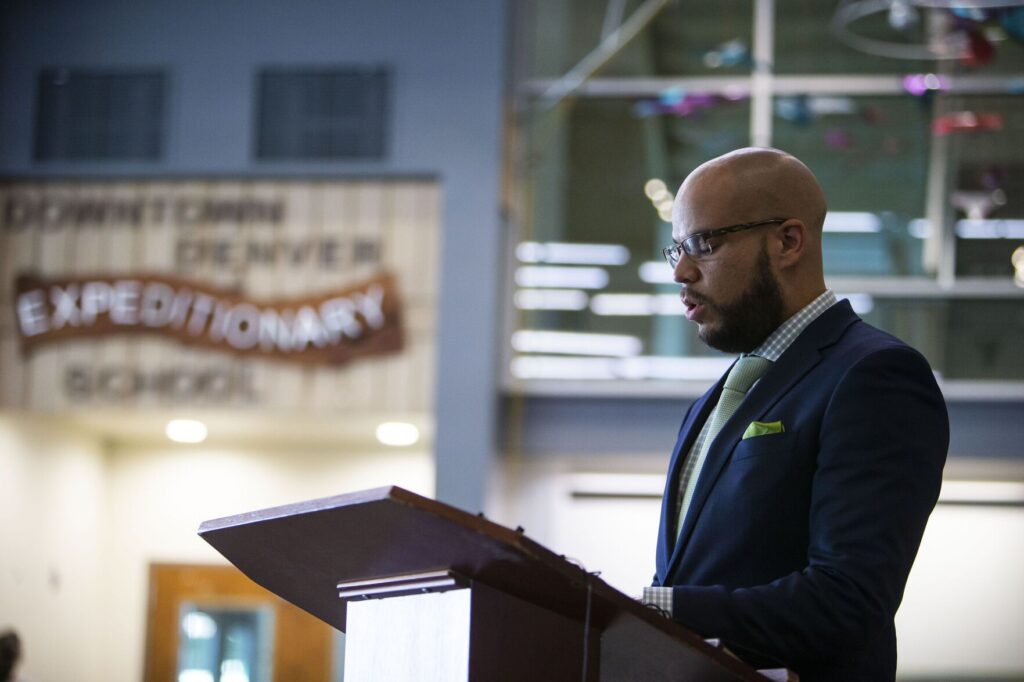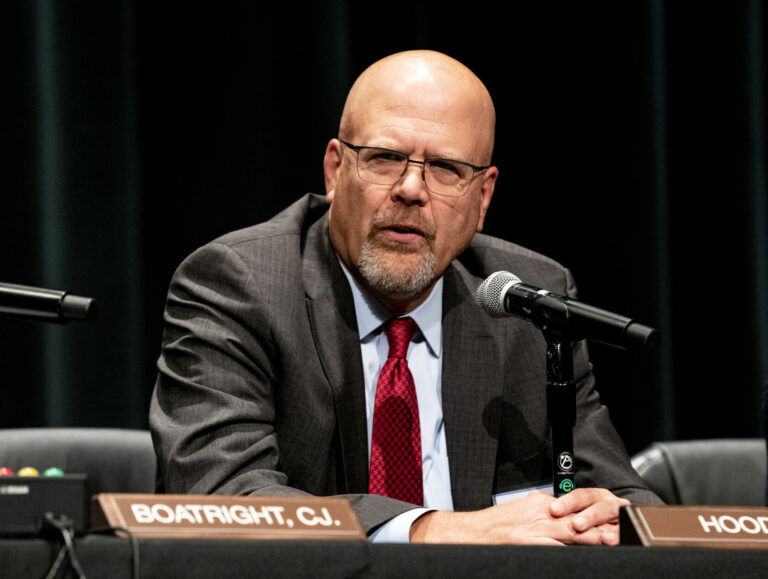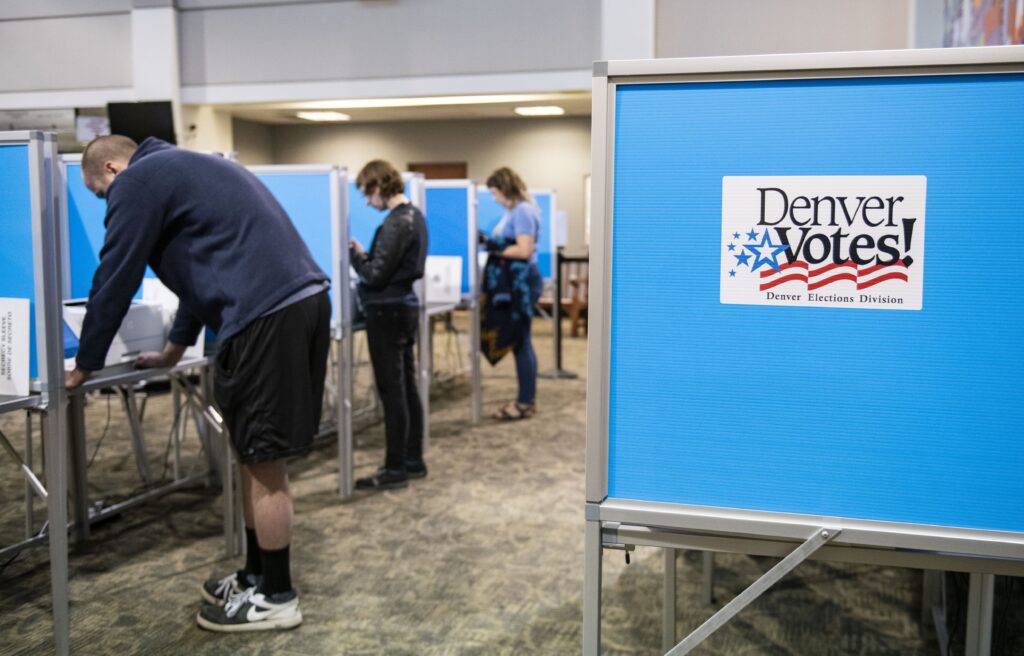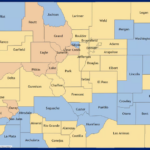‘Unaffiliated’ redistricting commission applicants assailed for perceived biases

Before Colorado’s 2021 redistricting has even begun, allegations of partisan gamesmanship have already bubbled up as the impartiality of dozens of applicants has been called into question.
In two separate letters, one from a bipartisan coalition of prominent Colorado politicians and political operatives and the other from the state Republican Party, some applicants who have applied to be on the state’s new independent citizens’ redistricting commission have been accused of hiding their partisan biases behind their party-unaffiliated voter registration.
The letters urge a panel of judges reviewing all of the redistricting applicants to remove from consideration applicants who want to be appointed to the “unaffiliated” seats on the commission, but who have partisan biases.
“Unaffiliated commission members will necessarily need to be strong and independent rather than a wolf in sheep’s clothing for either of the two major parties,” one of the letters reads.
In 2018, Colorado voters approved a new system for redistricting that would have everyday Coloradans draw the maps, instead of the political class. The new redistricting commissions, one for the state’s legislative districts and one for the state’s congressional districts, were designed to have four Republicans, four Democrats and four party-unaffiliated commissioners, in order to achieve a balance of interests, with the hope they would design maps that don’t give undue favor to either party.
The commissions are still in the process of being formed, as applications for each slot on each commission are reviewed by a panel of retired state judges and non-partisan legislative staff. The first six commissioners for the congressional redistricting commission – two Republicans, two Democrats and two unaffiliated voters – were randomly selected Feb. 1 from a narrowed pool of qualified applicants. The selection process will continue in the coming weeks until a process of review by the judges, random selection and selection of partisan commissioners from top state lawmakers completes the two 12-person commissions.
The two letters sent to the panel of judges and the legislative staff facilitating the selection process warn that if credence isn’t paid to the possibility that party-unaffiliated Coloradans with strong preferences for one or the other major parties may be posing as unbiased non-partisans, the entire redistricting process could be dominated by one side or the other, in contradiction to the intent of the new commission process.
“What if you end up with three of the unaffiliated commissioners who end up siding with the commissioners from one party on every decision?” mused Mario Nicolais, a prominent former Republican, political attorney and commissioner on the state’s 2011 reapportionment commission.
Nicolais is one of the signatories to the letter from a group of bi-partisan and non-partisan former politicians and political operatives.
“The point of Amendments Y and Z (the voter-approved ballot measures putting the independent redistricting commission into place),” Nicolais said, “was to make sure that the unaffiliateds appointed to the commissions are truly unaffiliated.”
In the letter, the indications of partisan leanings of some applicants are identified, though the letter doesn’t single out applicants by name.
Some of the indications of Republican leanings found in the party-unaffiliated applications include support for or donations to Republican U.S. Rep. Lauren Boebert’s campaign, donations to the National Republican Congressional Committee and National Republican Senatorial Committee, support for or donations to former President Donald Trump’s campaigns, a previous run for office against a Democrat, support for multiple Republican candidates from El Paso County and applicants citing “Make America Great Again” among past political activity.
Likewise, the indications of Democratic leanings they identified include donations to multiple Democrats, “such as Andrew Romanoff, John Hickenlooper, Hillary Clinton and Elizabeth Warren,” volunteering exclusively for Democratic-leaning organizations, “such as NARAL Pro-Choice Colorado, New Era Colorado Action Fund, and ProgressNow Colorado,” support for or donations to President Joseph Biden’s campaign, supported for or donations to Sen. Bernie Sanders, working for Sen. John Hickenlooper and membership in the Democratic Socialists of America.
“By the letter of the law, these people would be qualified to serve as unaffiliated commissioners,” Nicolais said.
But the process gives discretion to the panel of retired judges who review all the applicants, Nicolais said, to remove from consideration applicants who don’t meet the spirit of the law.
“What we’re saying is, exercise your discretion,” he said.
The state Republican Party went further, non only emphasizing the role of the judicial panel in using their judgment to vet applicants, but identifying by name 47 party-unaffiliated applicants who they believe should not have a place on the commission. The state GOP scrutinized public campaign finance records, social media accounts and the applications of the applicants.
Based on their research, the state Republican Party identified 40 unaffiliated applicants who they believe favor Democrats and seven unaffiliated applicants who they believe favor Republicans, and that all of them should be booted from consideration.
The letter from the state GOP also identified five Republican applicants who they believe should be stricken from consideration: Three who had financially contributed exclusively to Democratic candidates or efforts, and two they argue are unfit to serve on the commission because of what the letter characterized as unethical behavior. One had their law license suspended and one had been convicted of assault.
David Pourshoushtari, the Colorado Democratic Party spokesperson, said they had decided to launch a public outreach campaign, encouraging people to apply to the commission, but that they were not reviewing or challenging any applicants.
“If these unaffiliated voters meet the criteria,” Pourshoushtari said, “it seems kind of strange that the Republicans are kind of demanding a change in the rules.”
It makes sense, too, Pourshoushtari said, that more unaffiliated voters would lean toward the Democratic party, given the voting patterns in 2018 and 2020.
“Unaffiliated voters have just naturally been leaning toward the Democrats lately,” he said.
Christopher Murray, the attorney who wrote the letter for the Republican Party, said they weren’t asking for a change in the rules, but rather echoed Nicolais, emphasizing the role of the judicial selection panel to consider the applicant’s seeming leanings and make decisions that will lead to a fair mix among the unaffiliated commissioners.
“The biggest thing we’re going to be looking for on both the legislative commission and the congressional commission,” Murray said, “is, ‘do we have balance?’ “
The judicial panel charged with reviewing the applicants responded to the letters by saying they were read and considered and that the judicial panel would proceed according to the newly passed constitutional amendment.
On Feb. 1, the first half of the congressional commission, two Republicans, two Democrats and two unaffiliated commissioners were selected randomly from a set of qualified applicants who had also been reviewed by the judicial panel.
Jolie C. Brawner, one of the unaffiliated commissioners selected, is the executive director of the Washington Street Community Center. She listed in her applications contributions to Democratic Colorado House member’s Lisa Cutter’s 2018 campaign and Vermont Independent U.S. Sen. Bernie Sanders’ 2020 campaign. Browner helped organize the 2016 and 2017 Denver Women’s March, and coordinated an Educational Women’s Summit in 2016 for “March On Colorado.”
Lori Smith Schell, the other unaffiliated commissioner selected, is an energy economist, who holds a doctorate in mineral economics and operations research. Smith Schell listed supporting local Democratic candidates and the La Plata County Democratic Party, as well as U.S. Sen. Amy Klobuchar’s 2020 presidential campaign.
“I have no hidden agenda or axe to grind, which I believe will enable me to be fair and impartial.” she wrote in her application. “My objective is to advocate for redrawing voting district lines that would strengthen democratic representation to the benefit of all Coloradans.”














